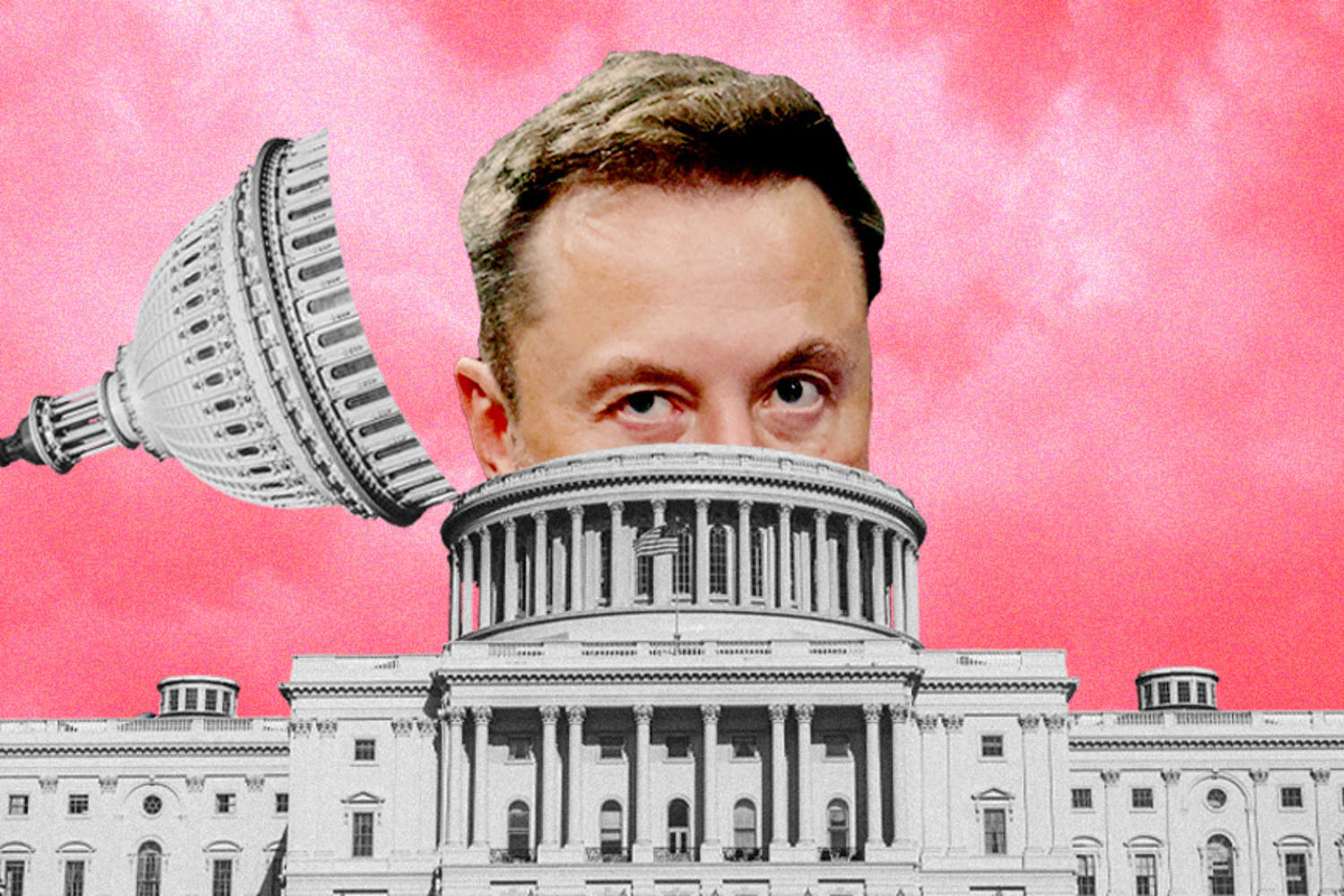
The media outlet NOTUS recently published a roundup of several prominent Republican senators’ takes on mega-billionaire Elon Musk’s extraordinary, legally questionable efforts to radically reshape the federal workforce. It documents a troubling new dynamic: Many GOP lawmakers are not only deferential to President Donald Trump, but also to his new shadow president.
We knew ahead of Trump’s second term that Republican lawmakers would likely be deferential to his wishes. What we didn’t know is they’d be deferential to Musk’s wishes.
“He’s doing exactly what he should be doing,” Sen. Rick Scott, R-Fla., told NOTUS. “He’s going through every agency and looking at how to make sure the money’s spent right.”
Sen. Bill Hagerty, R-Tenn., agrees with Musk’s efforts to shutter USAID, telling NOTUS, “The actions that have been taken with USAID are long overdue.” Sen. John Hoeven, R-N.D., speaking of USAID, said “they need to be accountable.”
According to NOTUS, Sen. Thom Tillis, R-N.C., is OK with the way Musk is operating despite its apparent illegality:
Tillis, even acknowledged that what Musk is doing is unconstitutional — but “nobody should bellyache about that.”
“That runs afoul of the Constitution in the strictest sense,” Tillis said. But “it’s not uncommon for presidents to flex a little bit on where they can spend and where they can stop spending.”
While NOTUS quoted a few Republican senators with reservations, their complaints were narrow. For example Sen. Susan Collins, R-Maine, said she was “very concerned about Mr. Musk or any of his assistants going into federal agencies and demanding personal information on employees.” Collins is already a relatively moderate outlier in the GOP caucus, and her comments hardly marked a wholesale rejection of Musk’s explosive debut in Washington.
The report makes for bleak reading. We knew ahead of Trump’s second term that Republican lawmakers would likely be deferential to his wishes. What we didn’t know is they’d be deferential to Musk’s wishes.
It is an almost unbelievable spectacle to see lawmakers delegate their own responsibilities of holding the executive branch accountable and scrutinizing how it spends money to a random tech tycoon interloper. Musk isn’t “doing exactly what he should be doing” — he’s doing what Republicans, who control Congress, ought to be doing.
Musk is exercising power beyond what’s usually associated with the presidency, yet as a “special government employee” has faced less scrutiny and vetting than a typical federal employee, if any. (The Trump administration has said, preposterously, that Musk will be policing his own conflicts of interest.) Even if Musk is ostensibly pursuing GOP goals, the means by which he has stormed Washington has shown a frightening and unprecedented disdain for democratic norms and transparency. Musk is trying to shut down entire entire federal agencies overnight; sending vaguely threatening-sounding and legally questionable buyout offers to millions of workers to encourage them to leave the government; locking career civil servants out of government computer systems; and has commandeered a federal payments system that handles trillions of dollars in federal payments every year. Tillis essentially admitting some of Musk’s actions violate the Constitution and then shrugging is a dereliction of duty.
What’s particularly striking is that many Republican lawmakers hardly know Musk and yet seem open, if not eager, to hand him the dynamite to blow up the government. Musk is well known as a tech titan, but he has no experience in government. He also has little experience as a right-wing activist. Until just a few years ago, he was a Democratic voter and donated to both parties; he is a recent convert to far-right populism. His rightward movement appears to have accelerated after his purchase of Twitter in 2022. Moreover, Musk’s business holdings put him in huge conflicts of interest with the federal government that mean some of his aims aren’t necessarily consistent with the party’s. This is all to say that Musk is unpredictable, has no record of allegiance to Republicans and is hardly someone I’d put my trust in even if I were on the right and broadly supportive of Trump.
Perhaps Trump has conditioned Republican lawmakers to such a state of subservience that they’ve lost all instincts of skepticism or long-term thinking about the republic. Perhaps GOP lawmakers are seduced — like much of the public — by the mystique surrounding tech magnates, many of whom are convinced that their mastery of business translates to everything else. But ultimately it appears Republicans, in allowing Musk to trounce Washington and attempt to transform the meaning of executive power, are making a reckless ends-justify-the-means calculation to advance right-wing ideology. That is, if they’re even thinking at all.
